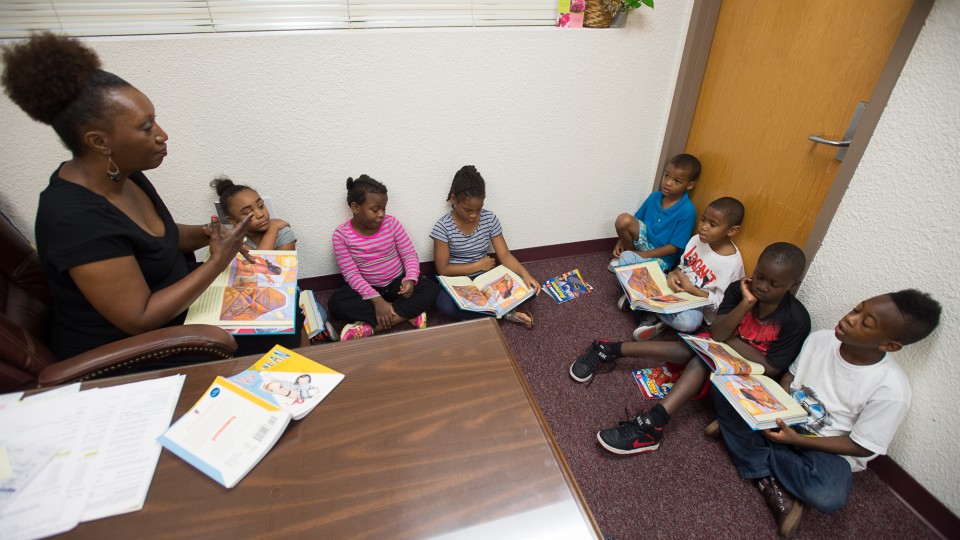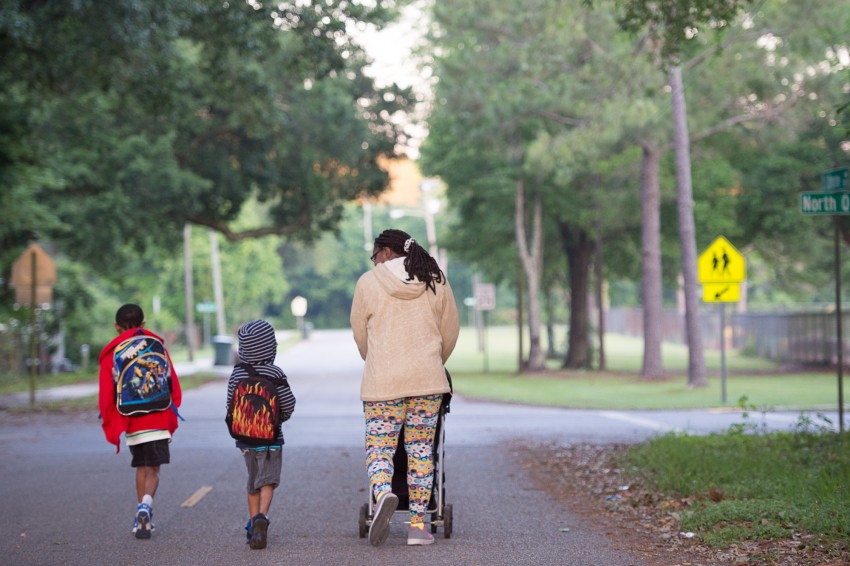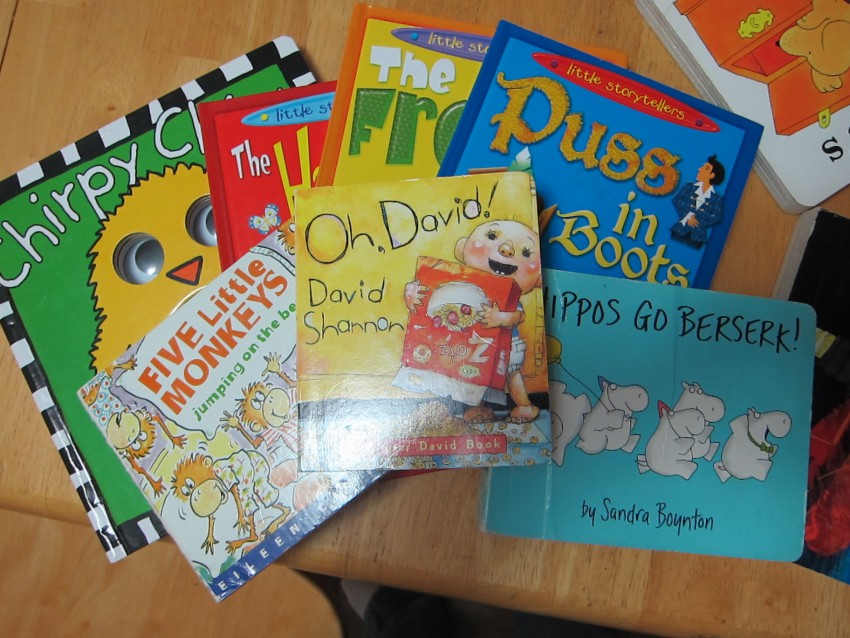Turning America's oldest city into its first early learning mecca
- April 3, 2016
- / Shannon Nickinson
- / education

Principal Cassandra Smith works on reading with second grade students in her office at Lincoln Park Primary School. Photo credit: Michael Spooneybarger
Imagine this.
Every new sidewalk has a hopscotch carved into it.
Those “Science in the Street” stations the Pensacola MESS Hall installed for a limited time are out all the time, so that even a stop at a bench can be a lesson in circuits, motion and sound waves.
You keep track of every shape you can identify on display somewhere in the Palafox Market and turn in your tally near the double arch sculpture for a free serving of seasonal fruit from a market vendor.
Every workplace with parents offers time after hours or on the weekends to help with the registration and enrollment process for voluntary prekindergarten.
Upon your return from maternity leave, your employer gives you a gift basket with children’s books, Legos, and shape-sorting blocks.
Every early learning provider in the county that is licensed or accredited by the state also carries a “Gold Star” rating that parents could use to gauge the quality of care provided to children ages 0 to 3.

Monek Galloway walks her children Eddie Jr. 8, Jeremiah, 5, and Elijah,1, to Weiss Elementary School in Pensacola, Fl. Thursday, April 30, 2015. (Michael Spooneybarger/ Pensacola Today)
Every childcare worker who works in an early learning center makes a living wage, one that would allow them to afford childcare for their own children.
Every parent who goes through the checkout line at Publix or Winn-Dixie is handed a pamphlet with the A-B-Cs and 1-2-3s of how words build babies brains and the times and locations of free story-hours at bookstores and public libraries.
Every produce section has signage encouraging youngsters to find as many colors as they can in the fruits and vegetables.
Every expectant mother leaves her first prenatal visit with an understanding of the importance of talking early and often to her baby.
Every pediatrician talks about infant brain development — and how words fuel it — at every well-baby visit.
Mixed into the rotation of cartoons on waiting room televisions across the city is a video about the way a baby’s brain develops — and how positive, loving words from parents are the vital food for those new neural pathways.
Every youth sports coach ends every practice with a reminder of the links between exercise, nutrition, and brain development.
It’s not reality in Pensacola. Not yet.
Nearly 85 percent of the human brain is developed between ages 0-3. But early education’s share amounts to 4 percent of the state’s education budget, according to advocates at the Florida Children's Movement.
State funding to Escambia for VPK is essentially flat at $5.1 million. Same with state funding to Escambia for the School Readiness Program, a separate program that covers the cost of childcare for parent with children ages 0 to 13 who work at least 20 hours a week and earn 150 percent of the federal poverty level, is also flat for 2016 at $13.6 million.
That is a long way to say that we cannot expect Tallahassee to help us make a dent in the number of children every year who show up without the skills they’ll need to succeed in kindergarten and throughout their school careers.
Those nearly 1,000 children in Escambia County who come kindergarten not prepared know they are missing something that their classmates have. Their teachers can tell you what it does to them, knowing that they can’t read and write their whole name, hold a crayon or pencil correctly, count to 20.
Like they have nothing valuable to offer; that they shouldn’t even try; that they don’t fit in; that the race isn’t fair, that the teacher doesn’t like them.
Like someone moves the finish line just when they get close.
It falls to us — private business owners, doctors, nurses, parents, home visitation workers, and concerned citizens of every social strata — to help close the gap for those children.
Because they are our children.
And given that, who better to provide them a community where the development of their brains is woven so deeply into the culture that our sidewalks, farmers markets, public buildings, grocery stores, and doctor’s offices all reflect that.
The discovery of the DeLuna settlement has made Pensacola rightly proud of its past.
Turning America’s oldest settlement into its first immersive early learning city would be a beautiful testament to our future.

 CivicCon launches with a look at good growth in cities
CivicCon launches with a look at good growth in cities
 Building stronger brains one baby, one parent at a time
Building stronger brains one baby, one parent at a time
 SCI debuts commercial on Early Learning City
SCI debuts commercial on Early Learning City
 Entrecon: World class speakers and an opportunity to sharpen skills
Entrecon: World class speakers and an opportunity to sharpen skills
 PYP Quality of Life survey 2017
PYP Quality of Life survey 2017
 EntreCon Pensacola 2016: A look back
EntreCon Pensacola 2016: A look back
 Leadership tip: getting better employee takeaways
Leadership tip: getting better employee takeaways
 Leadership tip: be interested instead of interesting
Leadership tip: be interested instead of interesting
 Leadership tip: delivering difficult messages
Leadership tip: delivering difficult messages
 Brain Bags boost Arc, Early Childhood Court programs
Brain Bags boost Arc, Early Childhood Court programs